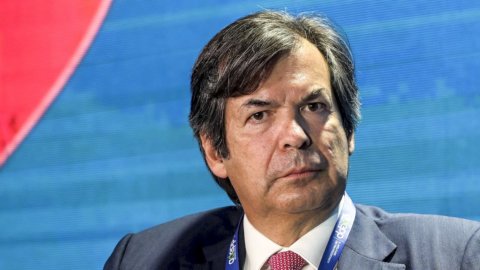It is a 26.5 billion dollar challenge that T-Mobile controlled by Deutsche Telekom has launched on Sprint, owned by the Japanese Softbank. The object of the all-in-stock purchase – which came after a series of false starts – is the business of new wireless networks in the US, dominated by two giants of the caliber of Verizon communications and At&T, the two leading operators in next-generation wireless networks. An all the more surprising expectation, writes Bloomberg, which comes after an identical deal between the two groups went up in smoke 5 months ago.
The acquisition will be paid for entirely in shares and values a Sprint share at 0,10256 of a T-Mobile share or approximately $6,62 based on last Friday's price of $64,52. Sprint closed Friday at a price of $6,5.
"The merger will have the scale needed to deliver more to consumers and businesses, in terms of pricing, innovation and network quality," said T-Mobile boss John Legere, who will also be chief executive officer of the merged entity. “Changes will come much faster now than if the two companies had continued to operate separately,” he added.
The company born from the merger will have 74 billion in revenues and 70 million subscribers, placing itself in third place, but will lag behind Verizon which, with 88 billion in wireless revenues and 111 million subscribers, holds first place on the US market and beats AT&T, second, which collects 71 billion from wireless with 78 million subscribers.
According to the announcement made Sunday by the two big telephone companies at the end of the operation, Deutsche Telecom will control 42% of the new company while softbank will have 27%. T-Mobile's Mike Sievert will be president and CEO, Deutsche Telekom will also be represented at the highest level with Tim Hoettges, while Softbank will have its CEO Masayoshi Son on the board. The two companies complement each other in that T-Mobile has a broad portfolio of low-frequency radio waves capable of covering long distances and going beyond walls and windows while Sprint has high-frequency radio waves (with a spectrum of 2,5 Gigaherz ) capable of carrying more data over limited distances. The real challenge will now be 5 G and fifth generation super-fast connections.
The ball now passes to the regulators who will have to give the green light to the union and overcome Donald Trump's mistrust. In 2014 in Washington the resistance was strong due to the fact that, it was said, a fourth operator on the market creates more competition. But now Sprint and T-Mobile will try to convince the US president that the union between them will set in motion large investments and create greater pressure on their rivals even if large job cuts are expected from the union. In fact, the two groups expect synergies valued at 43 billion in terms of NPV (Net Present Value).





